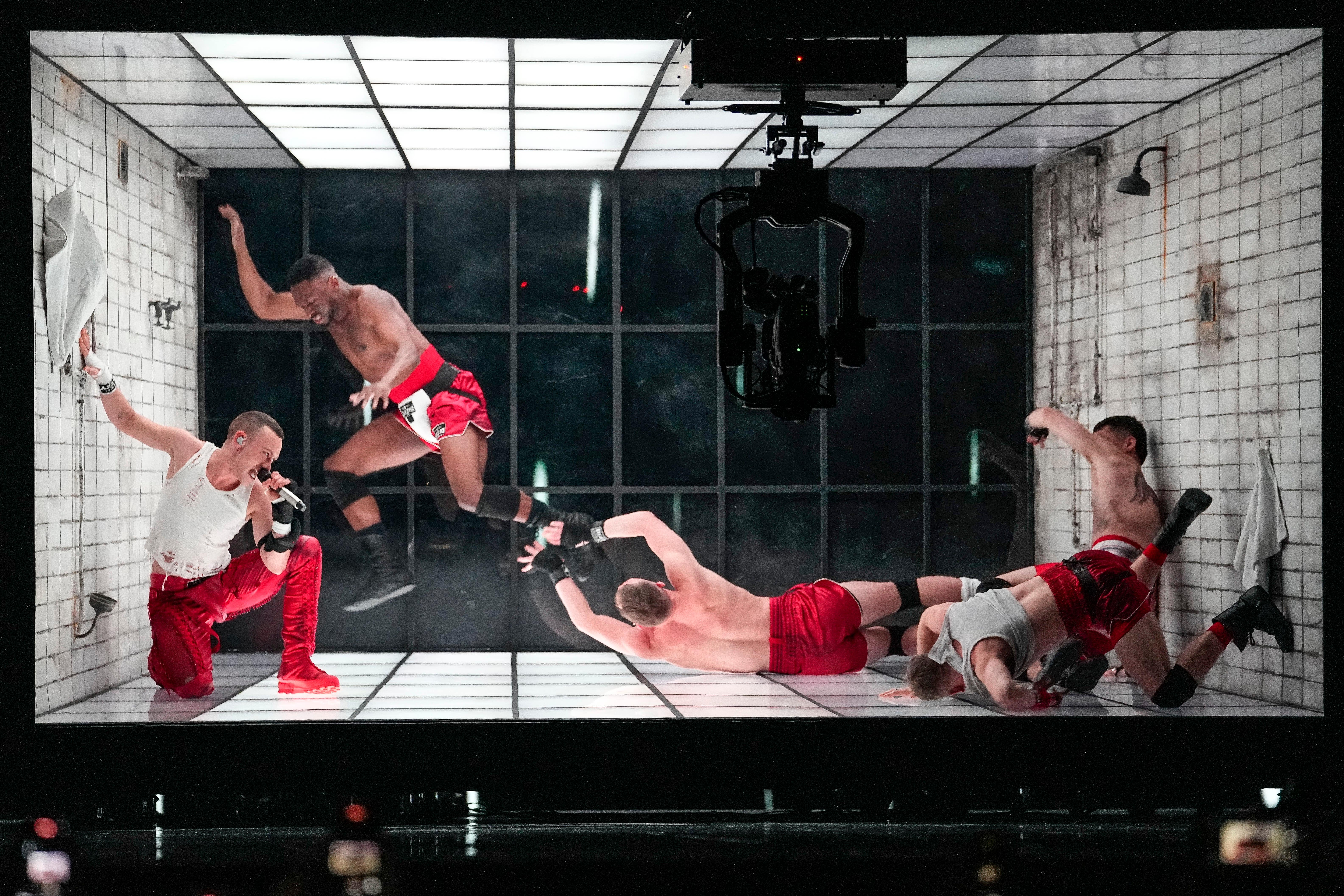Olly Alexander accused of being ‘off key’ during first Eurovision 2024 performance
Pop singer is up against fierce competition from delegates such as Ireland’s Bambie Thug, Croatia’s Baby Lasagna and Switzerland’s Nemo
Your support helps us to tell the story
From reproductive rights to climate change to Big Tech, The Independent is on the ground when the story is developing. Whether it's investigating the financials of Elon Musk's pro-Trump PAC or producing our latest documentary, 'The A Word', which shines a light on the American women fighting for reproductive rights, we know how important it is to parse out the facts from the messaging.
At such a critical moment in US history, we need reporters on the ground. Your donation allows us to keep sending journalists to speak to both sides of the story.
The Independent is trusted by Americans across the entire political spectrum. And unlike many other quality news outlets, we choose not to lock Americans out of our reporting and analysis with paywalls. We believe quality journalism should be available to everyone, paid for by those who can afford it.
Your support makes all the difference.Olly Alexander delivered his first Eurovision Song Contest performance at the first semi-final on Tuesday (7 May), which had some fans raising their eyebrows ahead of the grand final.
Alexander, who rose to fame as the lead singer for now-disbanded pop group Years & Years, sang his original track “Dizzy” at the Malmö Arena in Sweden, where the final is being held this Saturday (11 May).
The performance featured upside-down locker room staging and a troupe of backing dancers.
Some viewers immediately pointed out what they deemed to be a shaky vocal performance from the 33-year-old singer, with one writing on X/Twitter: “Had high hopes for the UK @Eurovision this year with Olly Alexander but it sounded a little ropey at the semi-final just now.”
Another remarked: “Let’s be honest. Olly Alexander just doesn’t have the voice.”
“Is it me or was Olly Alexander off key all the way through that performance? It just didn’t settle,” another questioned, while one viewer said: “The Brits trying to hype up Olly Alexander and saying they have a chance at winning as if he wasn’t off key for the whole performance.”

“Sorry, but Olly Alexander sounded off key,” another viewer agreed. “Or quiet. Not sure, but not great.”
“Well, Olly Alexander wasn’t great on the ears!” one Eurovision fan complained.
Eurovision is famed for its love of a strong vocal performance, such as last year’s winner Loreen who triumphed for Sweden with her rousing ballad “Tattoo”.
Other fans defended Alexander, with some spotting that he suffered a technical issue in the middle of his performance.
“Anyone else notice that Olly’s mic pack fell out,” X/Twitter user Dave Hope wrote. “Only noticed on the rewatch. As a gym instructor I know how off-putting that is. An amazing performance just got elevated even higher. Go Olly!”

Alexander admitted that he had been struggling in a recent interview, after the journalist noted that he seemed downcast during his performance at a Eurovision pre-party in London.
“Yes, I struggled that day,” he told The Times. “I was holed up in a room trying not to have a breakdown. Normally, you get on stage and turn it on, but I felt really unable to do that. It was tough... I just could not get it together and then I felt ashamed of myself and embarrassed.”
Alexander has come under intense pressure in recent months due to Israel’s involvement, which many Eurovision fans have objected to due to the country’s ongoing war on Gaza.
Last month, he responded to an open letter signed by Queers for Palestine, a collective of more than 450 queer artists, individuals and organisations asking him to withdraw from the contest in protest over Israel; Alexander and his fellow Eurovision contestants said their performances would go ahead.
“It is important to us to stand in solidarity with the oppressed and communicate our heartfelt wish for peace, an immediate lasting ceasefire, and the safe return of all hostages. We stand united against all forms of hate, including antisemitism and islamophobia,” the statement said.
“We firmly believe in the unifying power of music, enabling people to transcend differences and foster meaningful conversations and connections. We feel it is our duty to create and uphold this space, with a strong hope that it will inspire greater compassion and empathy.”
The first semi-final saw Ireland’s delegate Bambie Thug sail through to the grand final on Saturday, along with fellow favourites including Croatia’s Baby Lasagna and Ukraine’s Alyana Alyana and Jerry Heil.
The next Eurovision semi-final takes place on Thursday 9 May.

Join our commenting forum
Join thought-provoking conversations, follow other Independent readers and see their replies
Comments